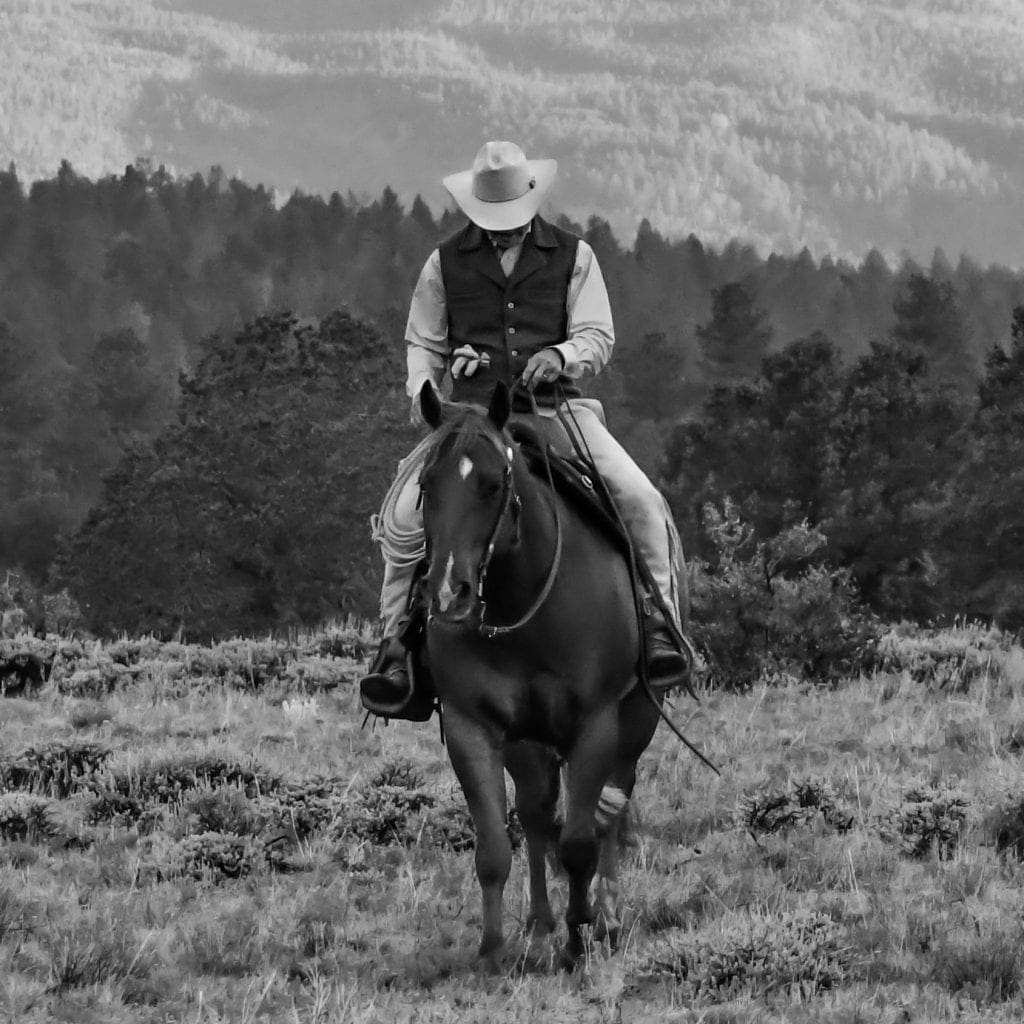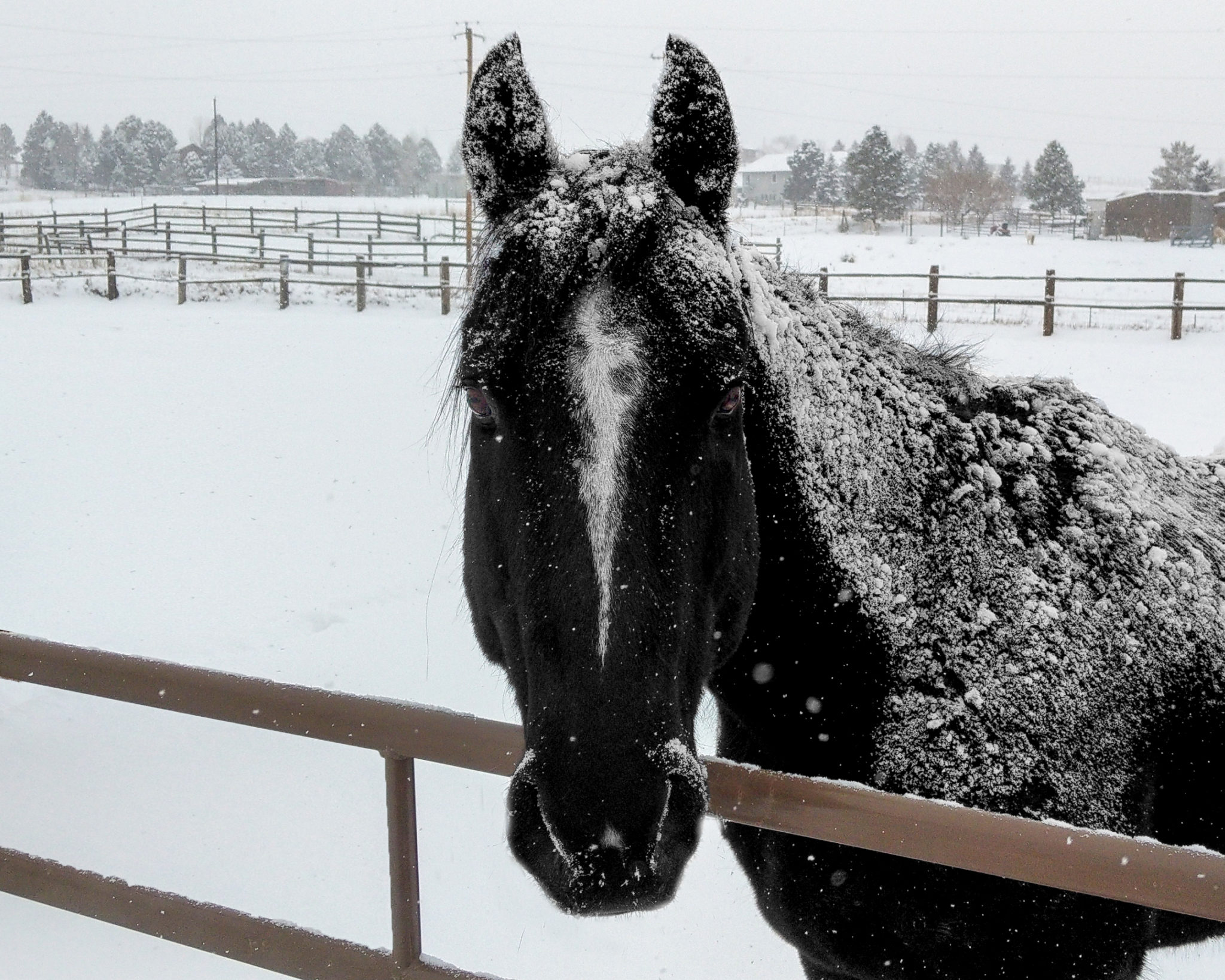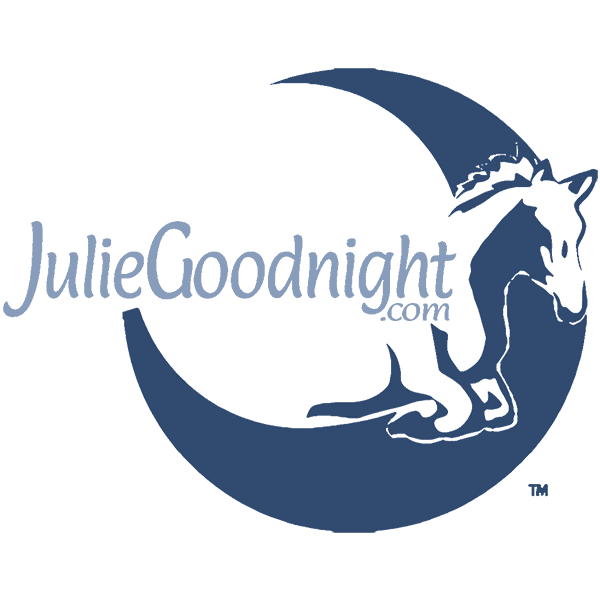
It’s never easy to witness. There’s something about their power… their free spirit… the image of running like the wind, that makes it especially hard to watch a horse go down. Seeing a happy and carefree horse suddenly fall ill and struggle to survive or watching an old beloved friend suffer and grow weak… these are some of the hardest issues horse owners face. The death of a horse is not something we like to think about, but death is a part of life and when it comes to horses, it’s best to be prepared.
Recently, we lost our horse Eddie—suddenly and with no warning. He literally dropped in his tracks in the arena, the entire ordeal lasting only a few minutes from start to finish. To say it was unexpected is a gross understatement. A few weeks later, I shared our loss in my newsletter, and I was floored with the response—through emails, texts, posts, phone calls and in person— people were expressing condolences and often sharing stories about losing a beloved horse. It made me realize that death is part of life and that we cannot expect to enjoy the incredible gifts horses give us, without taking on this risk and responsibility.
Sudden death in horses, from causes like stroke or aneurysm, is not common, but not unheard of either. Colic is by far the number one killer of domesticated horses and although it typically comes on fast and hard, in some cases it can be a long slow death, unless the suffering is ended through euthanasia. Many horses live with chronically debilitating and degenerative diseases, until their owners recognize the time has come to end their suffering. On rare occasions horses just lay down and die peacefully of old age. If only it was always that easy!
No matter how, when or where it happens, the death of a horse is tragic and difficult. Having an action plan for end-of-life events, thoughtfully considered ahead of time, will help you navigate this difficult path when it is thrust upon you. Understanding the options in dealing with the aftermath of a dead horse can be quite challenging and unpleasant – don’t wait until you are charged with emotion and tears to know what they are. Finally, moving on to a new horse is a big step for some people, but it is possible to find another connection. I have some advice that may help.
Action Plan
When the time comes and the unthinkable happens—your horse is dying or needs you to consider its quality of life —what will you do? What resources can you bring to the table? Who will you call for help? Is a trip to a veterinary hospital an option? How will you get him there? What if euthanasia is the kindest decision? Will you be able to make responsible decisions, on the spot? Probably not, unless you have thought some things through in advance.
Your available access to mobile veterinary care, as well as access to equine hospitals and surgical centers, will play a large role in the critical-care decisions you make for your horse. For instance, it would be a three-hour haul through the mountains for me to get a horse to a hospital that could perform colic surgery. Horses sick enough to need colic surgery may die in-route or be too exhausted to survive the difficult and expensive surgery.
Emergency veterinary care for horses can run north of $10,000 in just a few days, so it is an unfortunate fact of life that financial resources will also have a bearing on the decisions you make. Consider setting up an emergency fund and write down what your wishes are for your horse in the event of illness, or injury. These kinds of decisions are best thought about in advance and not in the heat of the moment. Be realistic about your budget and what makes sense. Make sure friends who may end up in charge of your horse’s life, if you are suddenly out of the picture, know what you would want done for your horses. Of course, medical and mortality insurance are readily available for horses, which is a good idea if you have a large financial investment in your horse.
Euthanasia decisions are required to be made by most horse owners eventually – we tend to outlive our horses, for the most part. In the case of old age, crippling lameness, chronical illness or degenerative disease, we sometimes have months or years to make the decision to “pull the trigger.” One of the biggest fears for horse owners is, “How will I know when it’s time?” You’ll know when the horse’s suffering is too great, when he’s depressed and has lost the will to live. When he can no longer lay down or get up. When movement stops because it’s too painful. The worst mistake you can make here is to get greedy—to be unwilling to let the horse go—protecting your own self-interest and shying away or ignoring the needs of your horse.
When you see your horses all the time, it’s easy to miss the slow degeneration…your horse has lost weight, conditioning, his attitude has changed…but you don’t see it like someone else would who hadn’t seen your horse in six months. Track your horse’s weight, it doesn’t matter how accurate the weight tape is, just that it can register a change. Get a resting heart rate, so you can monitor his pain level. Become familiar with the subtle signs of lameness and understand that horses are programmed to hide weaknesses to survive…when they finally reveal a weakness/illness/lameness it is often a shock.
It’s not easy to know when it’s the right time to end a horse’s suffering, but to me, the greatest mistake is in waiting too long and losing control of a dignified death. Don’t wait until it’s an emergency. This decision might be made easier by considering “The Five Freedoms of Horses,” which outline five aspects of animal welfare under our control:
- Freedom from hunger and thirst.
- Freedom from discomfort.
- Freedom from pain, injury and disease.
- Freedom from distress and fear.
- Freedom to express natural behavior.
When a horse no longer has all five freedoms, it’s probably time to consider euthanasia. Unfortunately, the decision to euthanize a horse sometimes comes with no warning or time for preparation. Here’s where your action plan can be most helpful. This is often the case with serious colic, acute laminitis or trauma. Call on those resources you’ve already identified – that friend, the vet or others knowing they have knowledge, experience and advice you can trust. The support of a horse professional or more experienced horse friend will also help you think through these hard decisions—call someone – you don’t need to go it alone. Sometimes the greatest gift we can give is to end the horse’s suffering and you should never feel badly about that. In the end you should trust your gut and listen to your vet.
Euthanizing a horse is not the easy way out and it is not a pretty thing to witness. Say your goodbyes, then consider letting the professionals handle the job. It’s best to preserve the most beautiful memories you have of your horse. It’s good to rely on others at times like this. If you feel the need to be there at your horse’s side for his last breaths, realize that it can be a dangerous and unpredictable process. Listen to your vet and let them coach you on staying out of harm’s way.
Guilt is a Useless Emotion
Often when horses die, especially from an acute colic or sudden death, we have a need to seek answers and assign blame. Too often, the answers will never be available to you, so time spent chasing them can be fruitless. Assigning blame and second-guessing, whether it’s to yourself or others, rarely if ever helps. It’s always important to assess what happened, what could have been different and how we might change things for the future. But no amount of guilt, blame or self-punishment will bring the horse back to life. So be kind to yourself. This sentiment was eloquently stated by a staff veterinarian at Nutramax Labs, in a letter to me, after Eddie died:
Dear Julie,
I’m so very sorry for your loss in Eddie. I know he was a fabulous horse and I also know that he had a fabulous life with you! I’m sure he couldn’t have had a better home than at your ranch! Unfortunately, we never know when their time will come to cross the rainbow bridge and sometimes it is far too soon. Find peace in the fact that he went quickly and did not suffer. There is nothing you could have or should have done differently for him. You gave him an amazing home and a wonderful life full of love! You and everyone on your team are in my thoughts and prayers!
Love and Hugs!!
Stacey Buzzell, DVM
Instead of feeling sad and guilty or angry and defensive, wouldn’t it be great if we could remember the good things about our time with that horse—reflect on the memories and savor the relationship we had? Another note I received from retired trauma physician—no doubt well-versed in knowing just what to say in times like this– was very meaningful to me and set the right tone…
Julie,
I am so sorry about Eddie’s sudden death and just want to tell you I’m thinking about you and your “barn family” as you each grieve the loss in your own way. Anyone who met Eddie immediately saw him as the epitome of a “Good Boy” and the love and respect and comfort he felt for you as his leader was so obvious when he was with you. Wouldn’t it be wonderful if every horse were able to live up to his potential in a similar environment? Give yourself a hug for the life that you and Rich gave Eddie.
Barbara Williams
Final Resting Place
Having to watch a horse suffer and making difficult, life-ending decisions is hard enough, and it’s followed by the challenge of physically dealing with the horse after he’s dead. Honestly, if you’re squeamish, it may be best to just skip this whole section of the article and find someone else to deal with it. But there will be decisions that must be made.
There may be renderers in your area that will come pick up the carcass and dispose of it in their own way. This is likely the easiest and cheapest solution, if it’s available to you. Also, there are cremation services for horses and generally the service you pay for (and it’s expensive) will come pick up the carcass and handle the cremation and return a large container of ashes to you.
Depending on where you live and the local and state laws that apply, your options for carcass disposal will vary. In many places, it is illegal to bury horses in the ground, in part to prevent contamination of the water table. If burial is an option on your property, then hiring a backhoe and driver to dig a hole may be an option, but it comes with a few caveats. If the driver has not buried a horse before, they will almost certainly make the hole too small. The size of the hole is way bigger than one might think. Getting the horse to the hole and fitting it into the hole is also not easy nor pretty and may require some wrestling.
If you are burying a horse that was euthanized with a needle, the carcass is highly toxic both to scavenger animals and to the water table. Chemically euthanized horses must be handled carefully to avoid spreading the toxins that are now in the carcass. Make sure the carcass is well-covered if some time will elapse before burial and use discretion in selecting a burial spot.
The local landfill may take horse carcasses but call them first so they can be prepared. I have on occasion, had a horse euthanized in a stock trailer so that the carcasses can be off-loaded easily and then immediately buried at the landfill. Again, this is not a pleasant thought, but sometimes, especially with euthanized horses, it is the most practical solution.
In many areas of the west, ranchers have “bone yards” at a remote location on their ranch where they take carcasses and let predators and Mother Nature do the job of decomposing. If you know a rancher that will allow it, this is not a bad way to go. It’s not an option for horses euthanized with drugs, but may be a viable solution for horses that die naturally or are euthanized with captive bolt or a bullet. Also, there may be uses for non-toxic carcasses in feeding zoo animals in your area.
Composting a carcass can be a viable solution, depending on how much land you have and the climate you live in. There are instructions available online and it’s an elaborate process. It takes six months to a year for the carcass to fully decompose, depending on the climate. Your veterinarian may know of other options in your area and your county extension agent should have some advice on carcass disposal.
There’s one more piece of advice that is not fun to talk about, but important to know. Removing a dead horse from a barn or stall can be ugly. If possible, you want to avoid having a horse die inside a building or area of confinement. It will require a large piece of equipment to move a thousand-pound carcass, which will need room to negotiate and lifting the carcass off the ground will require a tall reach. Once rigor mortis has set in, moving the carcass through door openings or out of stalls is nearly impossible and sometimes it can only be moved in parts if walls and fences cannot be disassembled.
These are certainly not pleasant issues to think about and investigate, but it’s far easier to get the information and choose an option well before you need it than in the heat of the moment.
Moving On
Just like with horses, humans can become so tightly bonded to one individual horse, especially when you’ve been partners for years, that starting over in a brand-new relationship with another horse can be a challenge. I’ve heard a lot of anguish over the years from people in this situation who’ve had trouble accepting a new horse—succumbing to the temptation to make comparisons between the horses and ultimately being disappointed in the new horse because they can’t let go of what they once had.
For many people, riding an unfamiliar horse is scary and leaving that comfort zone and heading into the unknown with a new horse feels like stepping off the edge of the earth. There’s no point in rushing into anything. Allow yourself to grieve. Give it time before moving onto another horse. For others, jumping back in the saddle with a new horse is just the right medicine, but could carry the risk of making an impetuous decision about a long-term relationship.
Whether you need to give it time or are ready to jump right back in, this is an opportunity for you to reassess your wants and needs, when it comes to your next horse. Before looking at any horses for sale or for adoption, think long and hard about your personal needs. What disciplines do you ride or want to ride, how much time can you devote to the new horse, your personal energy/activity level, and your skill level. What do you miss most about the horse you lost? What qualities do you wish to avoid? Create a list of must-haves and hope-to-haves and deal-breakers.
Rather than thinking of it as starting over, think of it as reinventing your horse life and a chance to create a new beginning and relationship. Make your lists and imagine your dream horse. Finding that horse will present a whole new set of challenges but knowing what you want is the right place to start.
Once you’ve found your new partner, be patient and allow your relationship to develop over time. Each horse and owner relationship is unique. Give your new horse time to adjust to its new life with you. Open your heart to this next step with your equine partner and avoid making comparisons with the horse you loved and lost. Know that it will take time to get to know each other, to build trust, to build a comfort level. Eventually, you’ll once again be able to focus on the power, the strength and the beauty that a horse brings to your life and simply enjoy the ride…

